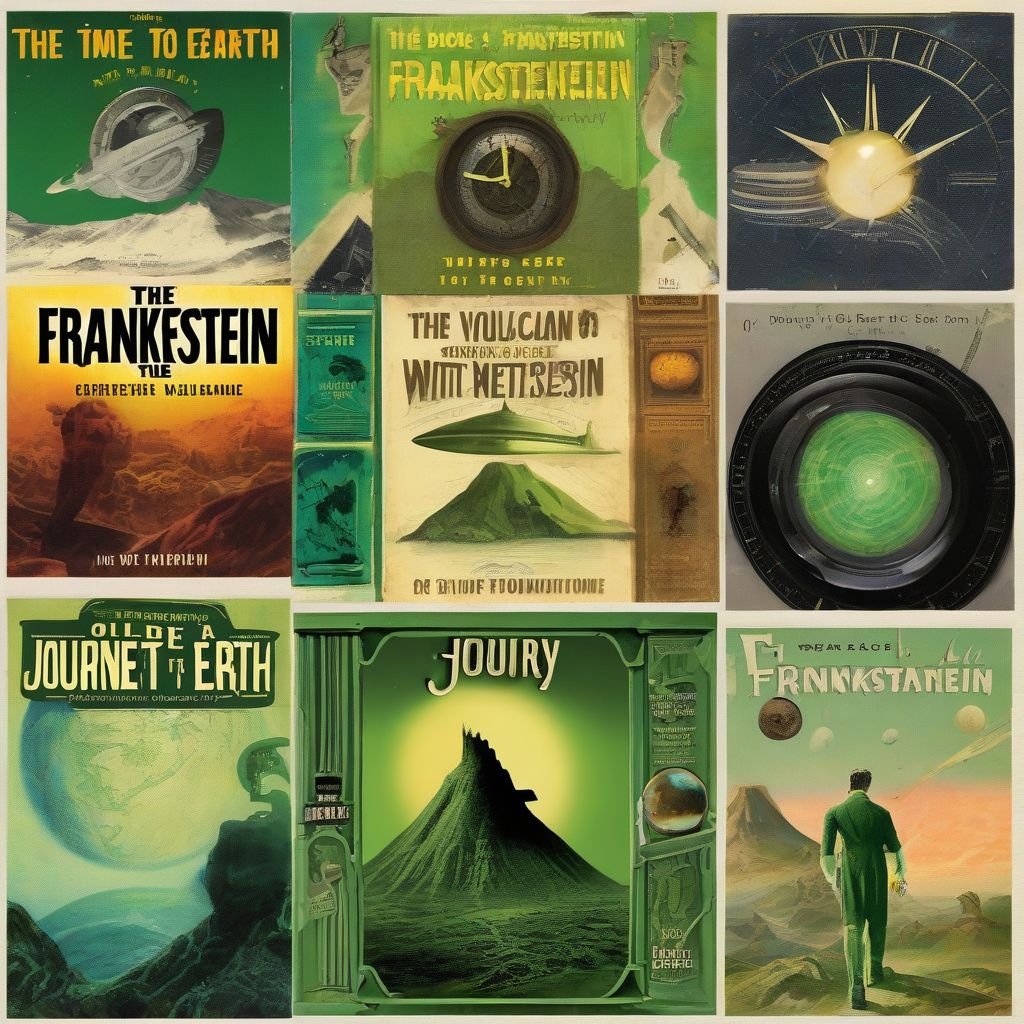Ever felt a shiver down your spine reading about a dystopian future that felt a little too real? Or found yourself utterly captivated by a story set on a distant planet, filled with alien life forms you never could have imagined? That, my friend, is the magic of science fiction, a genre deeply indebted to the visionaries we call pioneering science fiction writers.
These authors did more than just tell fantastical tales. They dared to dream of other worlds, to explore complex themes of humanity, technology, and the unknown, often masked within thrilling adventures. Their stories sparked our imaginations and, in many cases, foreshadowed the world we live in today. But how do we truly appreciate their contributions? How do we move beyond just enjoying the story and delve deeper into the impact they’ve had on literature and our world?
This exploration aims to equip you with the tools and perspectives to appreciate the profound impact of these literary pioneers.
Stepping into Their Universe: Understanding the Context
To fully appreciate the magnitude of their contributions, we need to step back in time. Imagine a world before the internet, before smartphones, before we landed on the moon. Pioneering science fiction writers dared to imagine these possibilities when the very concept seemed like something out of a dream.
These authors weren’t just writing stories; they were crafting social commentary, exploring anxieties about the present, and offering hopeful (and sometimes terrifying) glimpses into the future. Understanding the context in which they wrote – the societal norms, the technological advancements of their time, and their personal backgrounds – is crucial to grasp the significance of their work.
Delving into the Minds of Masters: Key Authors and Their Masterpieces
No exploration of pioneering science fiction writers would be complete without encountering the giants whose shoulders the genre stands upon:
- Mary Shelley: Often credited with writing the first true science fiction novel, Frankenstein (1818), Shelley explored the ethical implications of scientific advancement, a theme that resonates even more strongly today.
- H.G. Wells: From time travel in The Time Machine (1895) to alien invasion in The War of the Worlds (1898), Wells’s imagination knew no bounds, and his works continue to influence science fiction across literature, film, and television.
- Jules Verne: A visionary of his time, Verne’s Journey to the Center of the Earth (1864) and Twenty Thousand Leagues Under the Sea (1870) sparked a fascination with exploration and invention, inspiring generations of scientists and adventurers.
- Isaac Asimov: A master of hard science fiction, Asimov’s Foundation series (1951-1953) and his exploration of robotics in I, Robot (1950) delved into complex themes of artificial intelligence, societal structures, and the future of humanity.
These are just a few of the many incredible authors who shaped the landscape of science fiction. Dig deeper, explore their complete works, and uncover the hidden gems and recurring themes within their writing.
 A collage of book covers featuring pioneering science fiction novels, with a focus on "Frankenstein," "The Time Machine," "Journey to the Center of the Earth," and "Foundation"
A collage of book covers featuring pioneering science fiction novels, with a focus on "Frankenstein," "The Time Machine," "Journey to the Center of the Earth," and "Foundation"
[amazon bestseller=”science fiction classics”]
Unmasking the Layers: Identifying Themes and Tropes
Science fiction is a genre rich in symbolism, allegory, and recurring themes. As you delve deeper into the works of these authors, pay attention to the common threads that run through their narratives:
- Technological Advancement: How did these authors envision technology shaping the future? Were they optimistic about its potential or wary of its consequences?
- Social Commentary: Science fiction often serves as a mirror to society. What social issues of their time did these authors address through their writing?
- Human Nature: At its core, science fiction is often about exploring what it means to be human. How did these authors grapple with concepts of morality, identity, and our place in the universe?
By identifying and analyzing these themes, you’ll gain a deeper appreciation for the messages these authors conveyed and their lasting impact on our cultural consciousness.
Bridging the Gap: Recognizing Their Influence Today
The impact of these pioneering authors extends far beyond the realm of literature. Their ideas have permeated our culture, influencing advancements in science, technology, and even our understanding of the world around us.
- Scientific Inspiration: Concepts explored in early science fiction, such as space travel, robotics, and genetic engineering, have inspired generations of scientists and inventors to turn fiction into reality.
- Cultural Influence: From blockbuster films like Star Wars and Blade Runner to popular television shows like Stranger Things and Black Mirror, the echoes of these pioneering authors are evident in modern storytelling.
- Social Relevance: Many of the societal concerns explored by these authors, such as overpopulation, climate change, and the ethical implications of technology, are even more relevant today, making their work timeless and thought-provoking.
Continuing the Conversation: Engaging with Science Fiction
Appreciating the contributions of pioneering science fiction writers is not a passive endeavor. It’s about engaging with their ideas, challenging your own perspectives, and contributing to the ongoing conversation about the future. Here’s how:
- Join a Book Club: Discuss the works of these authors with others, sharing your insights and interpretations.
- Attend Science Fiction Conventions: Immerse yourself in the world of science fiction, connect with fellow enthusiasts, and learn from experts in the field.
- Support Modern Science Fiction Authors: The genre continues to evolve, with new voices exploring contemporary issues through the lens of science fiction.
A Legacy Written in the Stars
Appreciating the contributions of pioneering science fiction writers is a journey of discovery— a journey that leads us not just to distant planets and futuristic societies, but also to a deeper understanding of ourselves and the world we inhabit.
As you delve into their works, remember that you are not just reading stories; you are engaging with visions that helped shape the course of literature, science, and culture. So, pick up a book, open your mind, and prepare to be transported to worlds both familiar and extraordinary. The legacy of these pioneers lives on in their stories, and it’s up to us to keep their visions alive.
